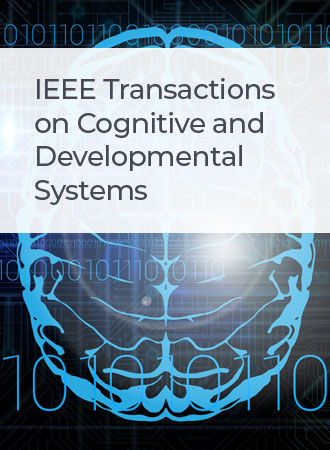Brain Compensatory Mechanisms During the Prolonged Cognitive Task: fNIRS and Eye-Tracking Study
IF 4.9
3区 计算机科学
Q1 COMPUTER SCIENCE, ARTIFICIAL INTELLIGENCE
IEEE Transactions on Cognitive and Developmental Systems
Pub Date : 2024-09-04
DOI:10.1109/TCDS.2024.3453590
引用次数: 0
Abstract
The problem of maintaining cognitive performance under fatigue is crucial in fields requiring high concentration and efficiency to successfully complete critical tasks. In this context, the study of compensatory mechanisms that help the brain overcome fatigue is particularly important. This research investigates the correlations between physiological, behavioral, and subjective measures while considering the impact of fatigue on the performance of working memory tasks. A combined approach of functional near-infrared spectroscopy (fNIRS) and eye-tracking was used to reconstruct brain functional networks based on fNIRS data and analyze them in terms of network characteristics such as global clustering coefficient and global efficiency. Results showed a significant increase in subjective fatigue but no significant change in performance during the experiment. The study confirmed that despite fatigue, subjects can maintain performance through compensatory mechanisms, increasing mental effort, with the level of compensation depending on the task's complexity. Furthermore, the study showed that compensatory effort maintains the efficiency of the frontoparietal network, and the degree of compensatory effort is related to the difference in response times between high- and low-complexity tasks.长时间认知任务中的大脑补偿机制:fNIRS 和眼动跟踪研究
在需要高度集中和高效率才能成功完成关键任务的领域中,在疲劳状态下保持认知表现的问题至关重要。在这种情况下,研究帮助大脑克服疲劳的补偿机制尤为重要。本研究在考虑疲劳对工作记忆任务表现的影响的同时,探讨了生理、行为和主观测量之间的相关性。采用功能近红外光谱(fNIRS)与眼动追踪相结合的方法,基于fNIRS数据重构脑功能网络,并对其全局聚类系数、全局效率等网络特征进行分析。实验结果显示,受试者主观疲劳程度明显增加,但表现无明显变化。该研究证实,尽管疲劳,受试者可以通过补偿机制保持表现,增加精神努力,补偿水平取决于任务的复杂性。此外,研究表明,代偿努力维持了额顶叶网络的效率,代偿努力的程度与高、低复杂性任务的反应时间差异有关。
本文章由计算机程序翻译,如有差异,请以英文原文为准。
求助全文
约1分钟内获得全文
求助全文
来源期刊

IEEE Transactions on Cognitive and Developmental Systems
Computer Science-Software
CiteScore
7.20
自引率
10.00%
发文量
170
期刊介绍:
The IEEE Transactions on Cognitive and Developmental Systems (TCDS) focuses on advances in the study of development and cognition in natural (humans, animals) and artificial (robots, agents) systems. It welcomes contributions from multiple related disciplines including cognitive systems, cognitive robotics, developmental and epigenetic robotics, autonomous and evolutionary robotics, social structures, multi-agent and artificial life systems, computational neuroscience, and developmental psychology. Articles on theoretical, computational, application-oriented, and experimental studies as well as reviews in these areas are considered.
 求助内容:
求助内容: 应助结果提醒方式:
应助结果提醒方式:


